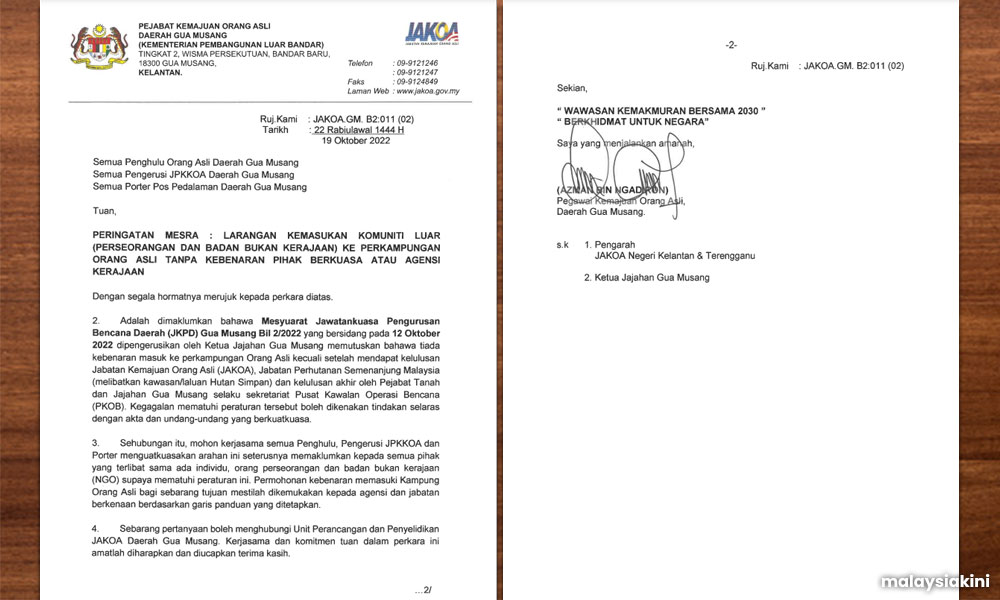Following an uproar over a controversial directive from the Gua Musang Jakoa Office barring outsiders from the area without prior approval, Jakoa's (Orang Asli Development Department) central office has issued a statement saying the decision was made to help with disaster mitigation.
The contentious directive issued an order to all Orang Asli village heads in the district to bar outsiders, including those from welfare NGOs from entering their area without prior approval of Jakoa, the Forestry Department and Gua Musang Land and Territory Office.
"This instruction was not issued from Jakoa's headquarters. It was a follow-up to the decision made by the District Disaster Management Committee (JPKD) meeting chaired by the head of the Gua Musang community.
"This ban was issued for more control during this monsoon season because it is feared that disasters such as floods or landslides will occur in inland areas, including in the Orang Asli villages in those areas," said Jakoa in a statement today.
Jakoa said that anyone, which includes individuals, non-governmental organisations or any other groups that want to enter the Orang Asli village must submit a written application.
They can then enter the Orang Asli villages, only after obtaining permission from Jakoa.

"So, this is not a decision that has anything to do with the election. It is more of internal control that the Gua Musang head wants to enforce in his capacity of managing disaster operations.
"If individuals or NGOs enter the area without prior knowledge and a disaster occurs at the same time, we fear it will make rescue operations difficult," added Jakoa.
The directive was met with strong opposition by Orang Asli activists who said they were mulling taking legal action against Jakoa.
Nasir Dollah, the deputy chairperson of the Kelantan Orang Asli Villages Network (JKOAK) questioned if the order was politically motivated as it was issued near the 15th general election.
"If they haven't realised, we are nearing the monsoon season and if this ban is enforced, then it would prevent NGOs from delivering assistance to the Orang Asli.
“And as we all know, the NGOs are usually the first to help our community whenever disaster such as floods happen," he told Malaysiakini.
Jakoa, in its statement, also said that damage to the roads in Gua Musang was due to the monsoon season, as well as caused by 4X4 extreme sports enthusiasts who entered the village to do programmes during the rainy season, to the detriment of the residents.
"This entry control is until the road conditions are restored and not to affect the daily affairs of the Orang Asli community involving 3,000 residents, 40 villages and six posts in the interiors of Gua Musang," said Jakoa. - Mkini



No comments:
Post a Comment
Note: Only a member of this blog may post a comment.